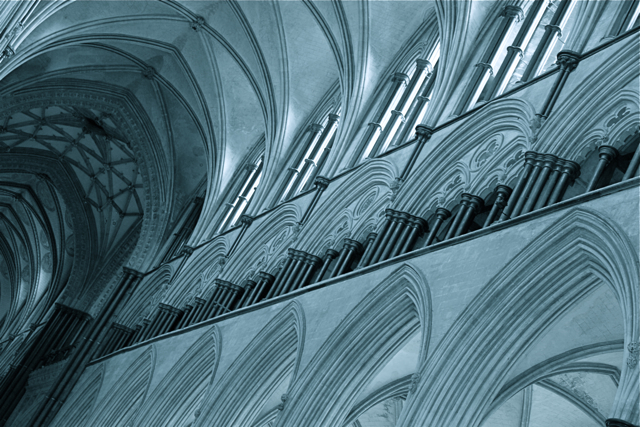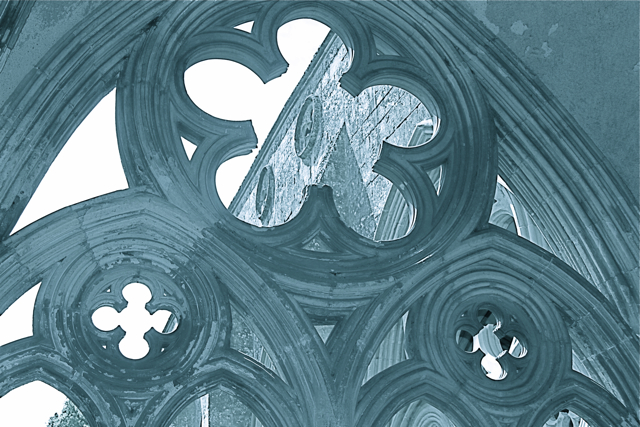The God of Celtic Christianity is not a distant, rarefied icon, but gets His feet muddy and clothes wet along the same journey. He appears in the Celtic prayers as the understanding traveling companion, sharer of joys and hardships, the other side of a conversation between friends. He is an intimate and confidante, close to and rather like the speaker, but a stronger, braver version, the one of the partnership who will step in, armed and defiant, to protect the speaker in an awkward moment. There are those moments when the two are not side by side and the companion is less present, such as when the elements upon which the speaker is dependant for crops or travel are uncooperative, but they are rare. There is also another beautiful sense in which the speaker or traveler is accompanied at all times by, not just one, but by the three companions of the Trinity–safety in numbers for the weary traveler!–
God be with thee in every pass,
Jesus be with thee on every hill,
Spirit be with thee on every stream,
Headland and ridge and lawn.
And again:
Be thine the compassing of the God of life,
Be thine the compassing of the Christ of love,
Be thine the compassing of the Spirit of Grace,
To befriend thee and to aid thee,
Thou beloved one of my heart.
God appears in every prayer as the Creator and “Lord of the Elements”: the Celtic way of prayer is never far from a sense of connectedness with the earth and a mutual nurturing that goes on between the earth and the traveler. The intense physicality of the Celtic understanding of the Incarnation is essential to our appreciation of the importance of the body to the Celtic mind. The Celtic Christian celebrates every cell of the physical being: the body is to be protected and cherished as a reflection of the Holy Trinity, and it is the piece of us that reflects the fully incarnated Christ. This feature of Celtic Christian theology serves to undo the Augustinian and Cartesian separation of body and spirit that was done to the utter detriment of body. Body regains its importance here as the beloved vessel of the Incarnation: “space, a sacred space, in which God dwells.”
The journey here is never into the detached self, possibly a concern of the seasoned contemplative; it is always, to the Celtic sensibility, aimed at relationship within the corporate whole–the village, the monastery, the Body of Christ. The question that gains the ascendance here is whether the Celtic Christian is growing in his ability to give and receive love in those relationships.



